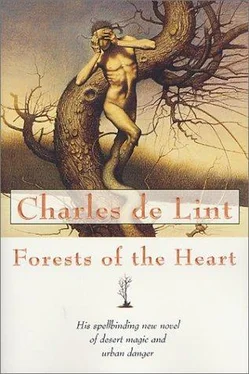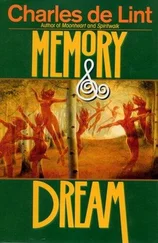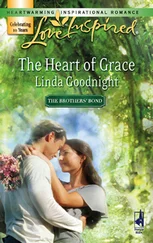He shrugged. “Maybe it’s like one of those Victorian calling cards that the Brits took around when they went visiting. Where did you get it?”
“I found it on the dash of the van last night—right after I met that strange woman.”
“And you think she left it?”
Ellie nodded. “But why?”
“Maybe she wants you to call her.”
“No phone number.”
“Fair enough.” Donal looked at the card again. “ ‘Handfast Road,’ ” he read. “That’dbe up in the Beaches, I’m thinking, so it’ll be all bloody straight-laced and la-di-da except for…” His face brightened. “Kellygnow. The artists’ colony. Aren’t they on Handfast Road?”
“Let me check.”
Ellie found her telephone directory where it was half-hidden under a stack of art and design magazines and looked up Kellygnow.
“Here it is,” she said. “The Kellygnow Artists’ Community. 17 Handfast Road. There’s even a number.”
“There you go. Mystery solved. All you have to do is call up there and ask for Musgrave Wood.”
“I suppose. Have you ever been up there?”
“A long time ago, and then it was just to a couple of parties that Jilly was invited to. But you know. It’s not really our crowd.”
Ellie nodded. Kellygnow had a close association with the university, whereas she and Donal and their friends were more connected to the Newford School of Art, even though many of them had originally attended Butler U. Ellie had never been up to Kellygnow herself. And except for In the City’s mentioning who was taking up or leaving residence, she never really thought much about it at all. It was just one more place in a very big city.
“So?” Donal said. “Are you going to call?”
Ellie shook her head. “What would I say?”
“Maybe there’s a commission in it for you.”
“I doubt that. If the name of the woman I met last night is Musgrave Wood, and she does want to offer me a commission, don’t you think she would have said something when we were talking?”
But Donal wasn’t going to be easily dissuaded. “Well, maybe they’ve got an opening and want to know if you’d like to take up residence.”
“As if.”
Many of the most important and influential artists to come out of the Newford fine arts scene had spent some time in residence at Kellygnow—everyone from the late Vincent Rushkin, considered by many to be one of the great twentieth-century masters, to the watercolorist Jane Connelly whose art hung in galleries throughout the world. Ellie believed in her own work, but the caliber of artists in residence at Kellygnow at any given time was in a different class entirely.
“Then what are you going to do?” Donal asked.
“Nothing.”
While she could see Donal’s frustration, Ellie had no interest in following up on anything so tenuous.
“But aren’t you at least curious?” Donal asked. “I mean, Jaysus. It’s like a mysterious summons of some sort.”
Still Ellie wouldn’t be persuaded. “Of course I’m curious, but I don’t like mysteries.”
Donal nodded. He got up and refilled their coffee mugs.
“It’s your choice, of course,” he said as he returned to the table and spooned sugar into his coffee. He looked up, a sparkle in his eye. “But all the same. It seems like such a waste of a good mystery.”
“If someone up there really wants to contact me,” Ellie told him, “my number’s in the book.”
A wave of music, conversational noise, and hot, smoky air greeted Hunter when he pushed open the oak and glass front door of The Harp and stepped inside from the snowy street that evening. He looked around for a moment, bunking in the haze, then saw Miki waving to him. She sat with her brother Donal at a small table just at the edge of where a dozen or so musicians were playing, the session led by a red-haired woman playing the uilleann pipes who seemed familiar, but Hunter couldn’t remember her name. The other instrumentation was mostly fiddles, flutes, and whistles, but there were also a pair of mandolins, a guitar, bodhrans, and the inevitable tenor banjo playing too loud above it all.
The Harp was in the Rosses, once the predominantly Irish part of town, north of the Market in Crowsea. The oldest Irish pub in Newford, it had been a Catholic stronghold, and meeting place for homesick emigrants and IRA sympathizers, but its partisan loyalties were no longer in evidence. As the make-up of the neighborhood took on a more international flavor and the clientele had come to encompass all nationalities, religious and political differences among the pub’s Irish patrons had mostly been set aside in favor of the craíc —an Irish tenn that encompassed the shared enjoyment of good company, good drink, and good music. Even the musicians were no longer exclusively of Irish descent. As Hunter made his way to the table where Miki and Donal were sitting, he noted a black man playing the tin whistle, a Jewish woman on the guitar, a young Asian man on fiddle—all three playing with the sensibility of having just stepped off the plane from Ireland.
The popularity of Celtic music didn’t surprise Hunter. There was something universal in its infectious dance tunes and mournful slow airs. He could hear echoes of it in everything from old timey and bluegrass to classical and the indigenous music of many other cultures. There was a purity in its cadences, a timelessness with which contemporary music couldn’t compete. He sometimes thought that the difference between the two was like the difference between North America and Europe: The landscape of each was as old as the other, but it felt older in Europe where churches, castles, even a cottage, could easily be six or seven hundred years old. As far as Western culture was concerned, North America hadn’t even existed until the last few hundred years and there were few pieces of architecture that could claim to be much more than a hundred years of age.
“You made it,” Miki said as he squeezed through the last dense press of bodies and tables and sat down in the chair she’d been saving for him. She grinned at him, obviously pleased.
“I said I would, didn’t I?”
“Yeah, but you’ve said it before.”
Hunter nodded. But that was before Ria had dumped him. She’d never cared much for Celtic music or the noisy sessions in The Harp—perhaps that should have rung a warning bell, he thought now—so he’d stopped coming to them. “You go on ahead,” she’d say when he’d suggest they drop by for a pint, but he never did. It didn’t feel the same going out to them on his own, leaving her behind.
Don’t go there, he told himself.
He was supposed to be trying to forget his problems, not brood on them. Yeah, right. But he could at least make an effort. So he turned to Miki’s brother.
“How’s it going?” he asked Donal.
The family resemblance wasn’t pronounced between Miki and her brother, though that had more to do with the sorts of people they were than genetics. Where Miki was a cheerful punkette, Donal had the look of an old, serious hippie—nevermind that he couldn’t have been much older than three and still living in Ireland during the Summer of Love. He was dark-haired and had a full beard, his long thick hair pulled back in a ponytail. His features were broader than Miki’s, though he wasn’t much taller than her. An often earnest gnome—or rather a leprechaun, perhaps—to her impish punk.
“I’m doing well,” Donal replied. “Sorry to hear about you and Ria.”
Hunter shrugged. So much for trying to forget, he thought.
Donal grimaced suddenly and Hunter realized that for all her innocent smile, Miki had given her brother a kick under the table.
Читать дальше












